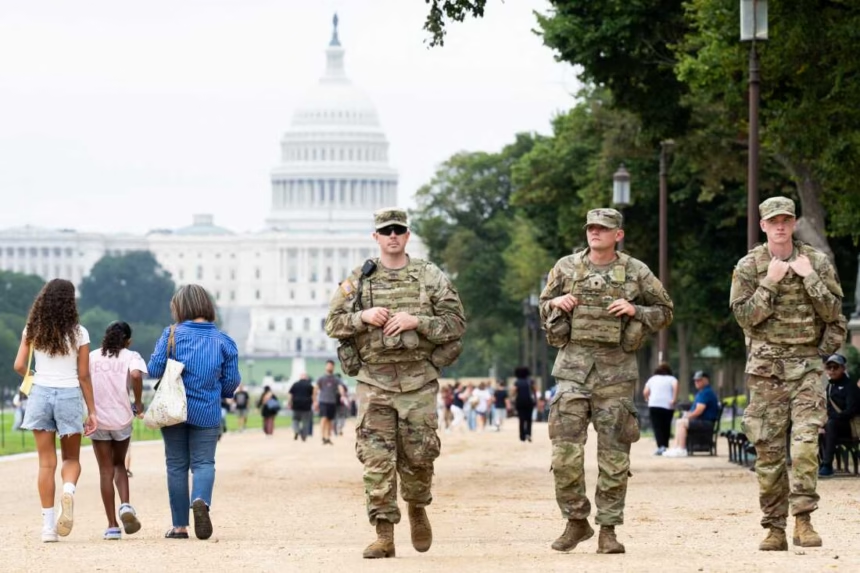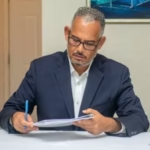As President Donald Trump considers extending the use of the National Guard to other major cities, Massachusetts Governor Maura Healey and Boston Mayor Michelle Wu have firmly rejected the proposal, denouncing it as an unnecessary measure that disrespects states’ prerogatives.
When questioned on Monday, Maura Healey accused the White House of prioritizing political showmanship over public safety. “This is political theater that does nothing to improve public safety,” stated the governor, pointing out that the administration has cut several essential local budget lines. “If Donald Trump truly cared about public safety, he wouldn’t be cutting funding to local law enforcement — which he did —, he wouldn’t be cutting funding to community policing — which he did —, he wouldn’t be cutting funding to victim services — which he did. And by the way, he cut National Guard funding by 40 percent.”
Regarding the possibility of seeing military personnel patrolling Massachusetts streets, Healey both reassured and warned: “We are prepared,” she declared, while adding: “I don’t want this to happen. It would be terribly disrespectful to the states, terribly disrespectful to Guard members.”
In Boston, Michelle Wu framed the exchange as part of a broader power struggle that she believes is being waged against Democrat-led cities. “We’ve been in their crosshairs for months at this point because our city embodies everything that proves them wrong. They’re wrong about safety. We are the safest major city in the country because everyone here participates in safety,” according to Michelle Wu, who says she is “closely monitoring” legal actions taken by other municipalities against the federal administration, according to Boston.com.
The officials’ statements align with a national context where the federal government has already increased the National Guard presence in Washington, D.C., and threatens similar deployments to Chicago, New York, and Baltimore. This prospect has drawn criticism from local officials, who view it as a dangerous precedent regarding the use of military forces for police duties.
The debate extends beyond security concerns: it strikes at the heart of American federalism.
In Los Angeles, the State of California is legally challenging the federalization and deployment of the National Guard implemented in June, arguing that these decisions violated legal restrictions on military involvement in civil law enforcement (Posse Comitatus Act) and infringed upon the governor’s authority. “A clear step toward authoritarianism,” Governor Gavin Newsom summarized when announcing his lawsuit, filed jointly with Attorney General Rob Bonta, reports Boston.com.
Several hearings have already taken place in California, where the State seeks to strictly regulate — or even halt — the use of military personnel in operations resembling police functions. Judicial and specialized press reports describe this as a test case on the boundary between “passive” military support and “active” police missions.
In Boston, a Red Line: Local Autonomy and Community Policing
For Michelle Wu, Boston’s security primarily relies on a community-based approach and co-production with residents, rather than an unsolicited military presence. The mayor advocates for a model where neighborhoods, municipal services, and local police work together — a model she considers incompatible with coercive federal intervention. “We are the safest major city in the country because everyone is involved in safety here.”
Healey, who commands the Massachusetts National Guard at the state level, emphasizes respect for command chains and legally defined jurisdictions.
The deployment of federalized troops without the governor’s explicit request would, according to her, constitute a serious breach of this balance.
The city of Boston and the State of Massachusetts remain vigilant regarding administrative and legal developments: firstly, monitoring the evolution of federal deployment projects in various metropolitan areas; secondly, following court decisions on the legality of previous deployments.
Source: According to an article by Dialynn Dwyer for Boston.com reporting on the positions taken by Maura Healey and Michelle Wu.
https://ctninfo.com/?p=36440&preview=true








